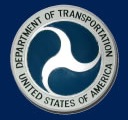 Citing a “powerful momentum” from last year’s national summit on distracted driving, the Department of Transportation plans a sequel for Sept. 21.
Citing a “powerful momentum” from last year’s national summit on distracted driving, the Department of Transportation plans a sequel for Sept. 21.
DOT chief Ray LaHood sent out the call to transportation officials, safety advocates, law enforcement, mobile phone and auto industry reps, safety researchers, and those whose lives have been shattered by distracted drivers. The event will be in Washington, D.C.
LaHood, who has seen his personal brand soar with his campaigning on the distracted driving issue, says a new national summit is needed:
“We’ve learned a lot in the past year, but there is plenty of new information to share. … With 6,000 people being killed annually by distracted driving and more than half a million others being injured — we can’t afford to be satisfied,” LaHood wrote on his “Fast Lane” DOT blog.
“We’re not about to rest now,” LaHood wrote.
The DOT pointed to these accomplishments since the 2009 Distracted Driving Summit:
- Dozens of new state and local distracted driving laws and bills.
- The texting and driving ban for federal workers.
- Establishment of the Focus Driven advocacy group.
- The U.N. “Global Call” for an end to distracted driving.
- Pilot enforcement sweeps in Hartford and Syracuse (currently under way).


Ban all use in autos while driving (the hands free device) is not
a safe alternative, the only way we will have a national ban on cell phones in cars, is when a high profile politician dies in a cell phone related accident or loses a member of his family that way.
I favor bans on texting while driving, but I strongly oppose any ban on the use of hand held cell phones while driving.
There is no evidence that using a hands free device is any safer than using a hand held phone. To the contrary, requiring hands free devices may cause even more accidents, because using a hands free device leads to a false sense of safety, resulting in people thinking it’s now safe to talk and drive and talking on their cell phones even more which will result even more accidents, not fewer.
It is the CONVERSATION that is distracting, not the act of holding the phone to one’s ear.
In addition, looking up and dialing the number and looking to see who is calling are the most dangerous parts of a cell phone call and those activities take place regardless of whether one is using a hand held phone or a hands free phone.
Still further, for those of us who rarely ever talk and drive, we will not routinely hook up a hands free device when getting in our cars. But, then, when we want to make a call or when someone calls us, we start frantically searching various consoles and compartments in our cars and purses looking for the hands free device, then trying to get it hooked up and then in our ear…all before the phone stops ringing. During this time, we are not looking at the road at all, but are looking for the hands free device and trying to get it hooked up. And we are probably steering with our knees.
it is much safer to simply pick up the phone itself and say “Hello”.
So, please do not try to ban hand held hand phones.